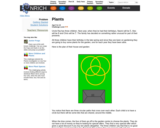
In this Nrich activity, students explore combinations in a situation with constraints. The combinations are complicated by sets and subsets. The situation uses a Venn Diagram.
- Subject:
- Mathematics
- Material Type:
- Activity/Lab
- Date Added:
- 05/31/2021

In this Nrich activity, students explore combinations in a situation with constraints. The combinations are complicated by sets and subsets. The situation uses a Venn Diagram.
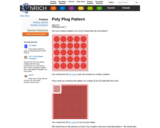
Students create and extrapolate patterns on an array for this Nrich activity.
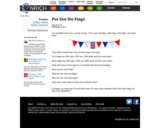
This problem gives practice in calculating with percentages. It can be approached by trial and improvement but the equivalence between fractions and percentages is very useful.
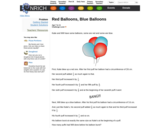
This problem would be a good one when doing calculations with fractions. It also requires logical thinking and organizing of results. Different strategies and approaches can be taken: knowledge of addition, or multiples, or an understanding of fractions can be used to arrive at a solution.
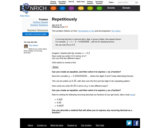
This Nrich problem offers carefully chosen examples intended to give students the opportunity to prove that any recurring decimal can be written as a fraction. Together with the problems Terminating or Not and Tiny Nines, this problem offers valuable insights into the relationship between fractional and decimal representations.
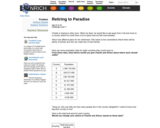
This problem confronts students with the idea that when collecting data to try to answer a question it is important to identify all the relevant variables, and that an over-simplistic analysis with a limited amount of information can lead to the wrong decisions.
The problem also offers the opportunity for students to practice calculating ratios, percentages and proportions.
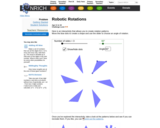
This Nrich problem appears at first to be about angles and rotations, but as students explore more deeply, they may be surprised to discover links to factors, multiples and primes. The images and interactivity provide an enticing hook to stimulate students' curiosity.
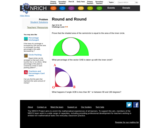
Students use a variety of properties concerning circles and sectors to justify statements.
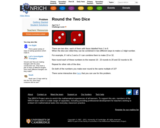
This Nrich activity provides a meaningful task for practicing rounding two-digit numbers to the nearest multiple of 10. It encourages children to record their results, notice patterns and make predictions.
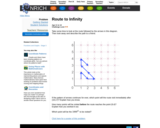
In this NRich activity students will analyze a pattern on a coordinate plane in order to make predictions.
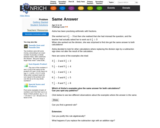
This Nrich problem lets you spot misconceptions your students have about subtraction and division of fractions, while giving students an opportunity to practice the procedures in an intriguing context - students' curiosity will be raised by the strange patterns in the calculations, and we hope they will yearn to explain what is happening.
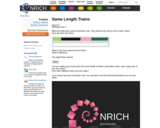
This Nrich problem is a good opportunity to encourage children to have a system for finding all possible solutions. It is also an ideal context in which to help children deepen their understanding of factors and multiples in a playful environment.
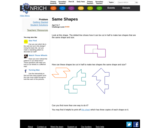
This Nrich activity will be very useful when wishing to challenge and extend pupils' spatial awareness with 2D shapes. It can also be an exercise in perseverance.
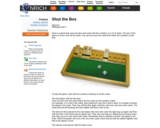
This Nrich game can give pupils the opportunity to use their number knowledge and it can be adapted to stretch even the highest attainers. In its simplest form it can be accessed by anyone in the class who is able to connect the number of spots on a die to the numeral that represents it. Altering the rules and including operations will give the children opportunities to explore ideas about what makes a "good" game and to develop winning strategies to play their games.

The topic of music can make a good connection between science and mathematics
The nature of sound and the working of the ear are rich areas of applied mathematics.
The ratio emphasis follows from harmonics or overtones and rests on ideas like lowest common multiple.

This Nrich game will help children to understand the tens and units structure of the numbers to a hundred. It can be used as an activity for one child on his/her own or by up to three at once. If there are four, it would be more suitable to play two parallel games.
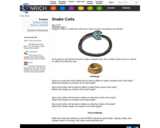
This Nrich activity engages the pupils in both a spatial and numerical context. It gives them also the freedom to choose how they go about it - visualizing in their head, using paper, string etc. that they have requested and/or making use of a spreadsheet. They can learn a lot from adopting one method and then realizing that an alternative method would be better.
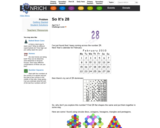
This Nrich task encourages creativity in developing patterns and using shapes to create composite shapes. This task could be done with tiles, blocks, or paper shapes.
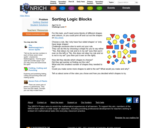
This Nrich activity can be used to build up children's confidence with the language associated with 2D shape.
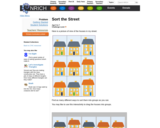
This Nrich activity can be printed or used interactively. Students will write down and discuss similarities and differences they see.